uPVC (unplasticized polyvinyl chloride) windows and doors with double or triple glazing are becoming increasingly popular in homes today. With good reason – they offer superior insulation, noise reduction, security, and durability and require little maintenance compared to traditional timber and metal options. This article will provide a comprehensive guide on double and triple-glazed uPVC windows and doors, their key features, and benefits.
Post your Requirement
What is uPVC?
uPVC or unplasticized polyvinyl chloride is a versatile, lightweight synthetic polymer that has been gaining steady popularity for door and window frameworks.
Composition:
- Mainly pure rigid PVC resin without any plasticizers.
- Stabilizers to protect against heat and UV rays.
- Lubricants, fillers, and impact modifiers.
Properties:
- Strong, stiff, and sturdy.
- Resistant to heat, cold, chemicals.
- Exceptional weather-proofing abilities.
- Effective sound and heat insulation.
- Long service life spanning decades.
What is Double and Triple Glazing?
Double glazing consists of two parallel panes of glass sealed inside a uPVC frame, with a gap between them filled with air or gas. This forms an insulating barrier against heat transfer and noise. Triple glazing simply adds another layer – three panes of glass instead of two, for even better thermal efficiency and acoustic insulation. The gaps between the glass panes may be injected with heavier insulating gases like Argon or Krypton which conduct less heat than air.
Types Of uPVC Doors
Below we have listed the different types of uPVC Doors:
- Horizontal movement for limited space.
- Large glass panels for natural light.
- Advanced security with multi-point locks.
- Double-door elegance with classic aesthetics.
- Extensive glass for indoor-outdoor connection.
- Hinged operation for wide entrances.
- Hinged for practicality and versatility.
- Glass panels for natural light.
- Various configurations for different styles.
uPVC Folding Door:
- Space-saving design with folding panels.
- Versatile configurations for indoor-outdoor connectivity.
- Large glass panels for expansive views.
- Dual modes: tilt for ventilation, slide for access.
- Enhanced security and energy efficiency.
- Low maintenance and smooth operation.
- Effortless lift-and-slide mechanism.
- Large glass panels for natural light.
- Energy efficiency and advanced security.
- Flexible operation for varying access.
- Space-saving with neatly stacking panels.
- Large glass panels for panoramic views.
Benefits of Double and Triple Glazed uPVC Windows
Here we have stated some of the benefits of double and triple-glazed uPVC windows:
- Energy Efficiency and Cost Savings: The main benefit of double or triple glazing is dramatically improved insulation – reducing heat loss in winter and heat gain in summer. This means lower electricity bills for heating/cooling, typically saving 15-25% annually. It creates a uniform comfortable temperature too.
- Noise Reduction: The air gaps dampen outside noise, making double-glazed windows up to 50% quieter. Triple glazing with thicker glass panes blocks even more external noise – by up to 70% when closed. This is perfect for homes near busy roads or under flight paths.
- Reduced Condensation: The inner pane of glass stays warmer thanks to the air gap, minimizing interior condensation, mold, and mildew. This allows more natural light into rooms too.
- Added Security: With strong uPVC frames and multiple layers of tamper-proof laminated glass, these windows and doors prevent break-ins far more effectively than single-pane options. Their concealed hinge mechanisms also protect against levering open attempts.
- Weatherproofing: Double or triple seals keep drafts, rain, and extreme weather outside. These windows provide greater protection in storms, coastal conditions, and areas with big temperature differences between seasons.
- Low Maintenance: uPVC is durable and unlike wood, does not warp, rot, or need periodic painting. These units also have wider nylon brush seals at the edges to block dust. Just an occasional clean with water and mild detergent is all they need.
- Design Flexibility: uPVC building products are available in a vast range of styles, finishes, and custom color options. So you can match your interior design easily. The frames also allow more light into the house.
- Long Lifespan: With uPVC’s long lifespan of 35-40 years, these double and triple-glazed windows and doors will serve your home well for decades before needing replacement. Their components have at least a 10-year manufacturer guarantee too.
Is Triple Glazing Better Than Double Glazing?
For even higher energy efficiency standards like Passivhaus, triple glazing is the best option. Adding 33% more insulating air space reduces U-values further for maximized thermal performance. Very cold regions also benefit from the additional protection against heat loss that triple-glazed units provide.
However, for most homes, quality double glazing gives sufficient noise insulation and energy cost reductions. It’s only worth investing in triple glazing if going for a premium energy rating or living in an extremely cold place. Else the cost difference alone of triple over double glazing will take decades to recoup from slightly lower heating bills.
Conclusion
With their outstanding insulation capabilities, noise dampening, security, weatherproofing, and low maintenance; double or triple-glazed uPVC windows and doors are a smart upgrade. Allowing natural light while conserving energy use, helps create healthier, more comfortable living environments. This saves significantly on bills too. So consider replacing outdated single-glazed fixtures with these modern-glazed alternatives to enjoy a warm, quiet, bright home for years.
FAQs
Q-1. What is the composition of uPVC?
A-1. uPVC, or Unplasticized PolyVinyl Chloride, is mainly composed of pure rigid PVC resin, stabilizers for heat and UV protection, and lubricants.
Q-2. What advantages does uPVC have over aluminum in terms of thermal efficiency?
A-2. uPVC’s low thermal conductivity, 100 to 250 times lower than aluminum, leads to substantial energy savings and better insulation against temperature fluctuations.
Q-3. Why is uPVC considered more cost-effective compared to traditional materials?
A-3. Despite comparable features, uPVC is 30-50% cheaper due to easy mechanical processing, lower maintenance, and quicker cost recovery within 5 years.

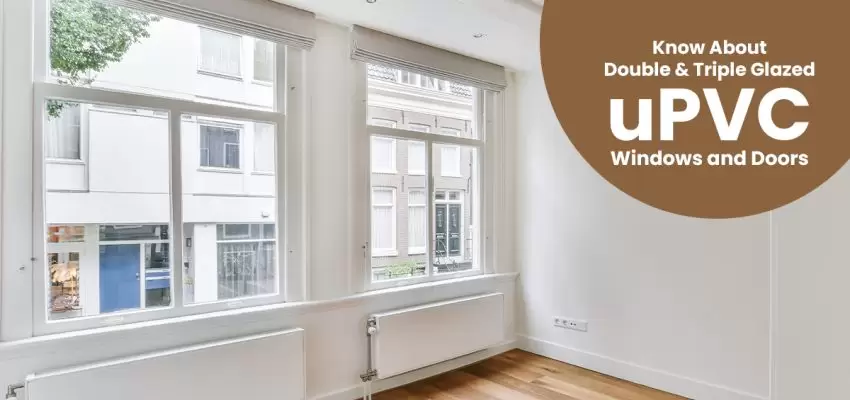
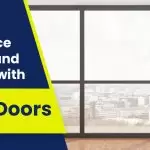
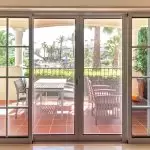
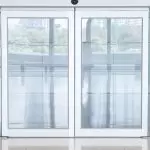
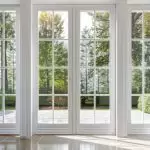

















Post A Comment